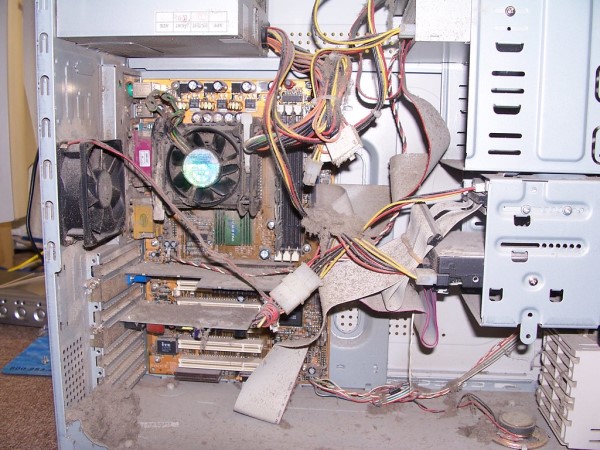Hard drive failure and what to do
Hard drive failures are among the most demanding computer hardware problems. It can cause you to lose everything on the computer. This blog post will discuss the most common reasons for hard drive failures and how to avoid them.
Current hard drive failure rates are about 1.4% a year, figures now are slightly down on last year.
Frequent causes of hard drive failure:
The most significant cause of failure is physical damage caused by moving, bashing or dropping a computer.
The computer should not be moved when switched on.
Overheating

Nothing inside a computer likes to be hot.
A malfunctioning fan and blocked vents all limit ventilation by air to the computer will increase the temperature. A layer of dust inside the computer acts like a blanket, keeping the temperature up.
This can cause overheating and result in hard drive failures.
To reduce the likelihood of overheating, keep your computer in a dry, clean, and well-ventilated location. Ensure the vents are not clogged with dust and the air is circulating into the computer.
Power Surges
Power surges can harm the hard drive if surge protection isn't adequate. Nothing inside the computer likes surges. Examples include electrical failures, lifts, elevators, workers nearby, malfunctioning equipment, etc.
It happens all the time, all you see is the light flicking for an instant, and the computer dies.
A UPS or surge protector is a good idea.
Malware, viruses, and other types of malicious software
Some of these are designed to damage hard drives.
You should always be running a good virus protector and a current copy of windows.
Regular use
Hard drives are mechanical devices designed to last only a certain length of time, and this design life depends on the manufacturer. As a rule, they work on 2% a year for new computers, so your hard drive is designed for at least a 2% failure a-year rate. Interestinly now, the figure is 1.4% which means manufactures are getting better. Yet, there is always a catch. It is never simple. These failure rates are quoted for new computers used in clean airconditioned offices, eight (8) hours weekdays with regular use. If you use a computer in a shop full of dust, twelve (12) hours a day, running many programs, and people bash it all day, when the failure rate will be much higher.
In other words, failure is inevitable; it is a matter of time.
Failure Signs
Awareness of the warning signs of a failed hard drive is essential. If the failure is due to regular use, strange error messages appear, the computer goes slow for a while, strange noises come from the computer, and system crashes are often.
If any of these symptoms appear, you should immediately contact us. We can identify the issue and suggest a course of action.
Prevention and Data Recovery
Back up your data regularly. Data cannot be replaced, and a computer can. If something goes wrong, backing up your files will safeguard your business.
We have a free cloud backup procedure that can help.
Conclusion
The failure of hard drives can cause your important data to be lost and cause significant disruption to your shop. You can delay and prevent most hard drive failures. Your data should be regularly backed up. We have a free backup option that can help. If your hard drive fails, you must immediately stop using it and get in touch with us. Refrain from attempting to keep using a damaged hard drive.


